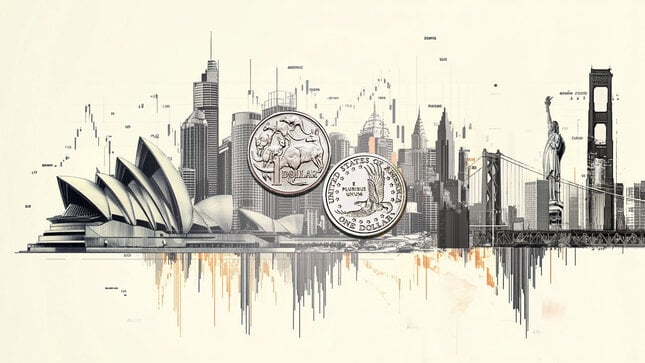The world of finance loves its acronyms, perhaps even more than Line of Duty’s Ted Hastings and his team at AC-12. One of the newest is ‘ESG’, which stands for environmental, social, and (corporate) governance, and has recently supplanted socially responsible investing (SRI) as the latest buzz term. ESG and SRI are used to cover companies that prioritise responsibility and sustainability for an overall positive impact on the planet. Both are considered a giant leap forward from the old investment ethos where shareholder value was paramount. Now companies can benefit by going the extra mile to keep their workers and customers happy, putting the health of the planet at the forefront of everything they do, and ensuring that the management is transparent and fair in all their dealings.
What is an ethical investment?
Of course, ethical investing has been around for many years, but it was generally considered the preserve of charities and church pension funds. Back in the ‘90s, a fund manager, usually under pressure, would announce that they were divesting their portfolios of shares in companies linked to the arms trade or defence. Then it was tobacco stocks, and more recently miners and oil producers.
However, ethical investing has always been controversial. For instance, is Rolls Royce a straightforward engineering concern, or an arms manufacturer? While one person’s ‘green’ company may be another’s ecological vandal. Consider Tesla. Yes, it’s a pioneering electrical vehicle manufacturer, but the batteries it relies upon require rare earth metals such as lithium and cobalt, mined at great human and environmental cost. And for some funds, it’s complicated when it comes to what is actually in the portfolio. It wasn’t long ago that the Archbishop of Canterbury promised to put payday loan providers out of business, only to find that the Church of England held an indirect interest in Wonga, one of the leading companies in that sector.
So, how do we define an ESG?
Defining what is meant under each section of ESG would take far too long to explain here. Suffice to say that ‘Environment’ considers a company’s carbon footprint, greenhouse gas emissions and climate change policies. The ‘Social’ component covers company culture and issues impacting employees, customers, suppliers, and wider society. ‘Governance’ refers to the way the company is managed. A company with good corporate governance and a strong board of directors should relate well to different stakeholders, run its business effectively, and align the management team’s incentives with the organisation’s success. This will also account for the diversity of the board of directors and management team, as well as transparency in communications with shareholders.
It’s difficult to think of companies that are outstanding in everything. Some will score well in some areas and do badly in others. Also, some things can be measured and certified while others can’t. Be wary of companies that state wholesome-sounding ‘goals’ but fail to provide hard evidence. Although it can be difficult to track down, it’s possible to find data prepared according to respected sustainability standards, such as those established by the Global Reporting Initiative (GRI) and the United Nations Principles for Responsible Investment (PRI).
When companies make statements about their commitment to mitigating climate change and ensuring good governance by looking after their employees and protecting the environment, then their track record can be examined. But there are voices out there suggesting that there’s a considerable amount of hubris around this issue, along with plenty of greenwashing.
Why do people invest in ESGs?
Despite such difficulties, the modern ESG investor attempts to set themselves apart from the investing herd by weighing up a company’s record in these three key areas with its financial performance when deciding whether to invest or not. It’s not hard to see why. For a start, they can avoid being caught trying to profit from companies that, say, exploit their workers or pollute rivers. But more than that, there’s a growing body of evidence that suggests ESG investing provides competitive returns while reducing portfolio risk. The coronavirus crisis showed that stocks of companies that perform well for ESG issues are often less volatile. The pandemic also raised public awareness of ESG issues such as workers’ health and safety. So, what’s not to like about ESGs? You invest to make money, but if you can do so ethically while helping save the planet, surely that’s the best of both worlds.
Should you get involved in ESG investing?
The bottom line? Without a doubt, there’s a lot of people jumping on the bandwagon here, as seen in the big rush to push out funds containing companies that are ‘ESG-compliant’. Many will be, but plenty of others are stretching the definition.
If you are genuinely keen to invest in a company claiming ESG compliance, then do your own due diligence. The same caveats apply when looking at an ESG-compliant fund, investment trust or ETF as it’s vitally important you know what the fund contains. However, you must also decide what specifically within ESG is important to you. At this stage in the game, ESG investing is still very much open to different interpretations.
Financial spread trading comes with a high risk of losing money rapidly due to leverage. You should consider whether you can afford to take the high risk of losing your money.
Editors’ Picks

AUD/USD now targets the 0.7150 zone
AUD/USD has rapidly left behind Tuesday’s pullback, advancing sharply to three-year highs past the 0.7100 barrier on Wednesday. The pair’s strong performance follows investors’ assessment of the RBA’s hawkish message and the likelihood of further tightening down the road.

EUR/USD faces next resistance near 1.1930
EUR/USD continues to build on its recovery in the latter part of Wednesday’s session, with upside momentum accelerating as the pair retargets the key 1.1900 barrier amid a further loss of traction in the US Dollar. Attention now shifts squarely to the US data docket, with labour market figures and the always influential CPI releases due on Thursday and Friday, respectively.

Gold holds on to higher ground ahead of the next catalyst
Gold keeps the bid tone well in place on Wednesday, retargeting the $5,100 zone per troy ounce on the back of modest losses in the US Dollar and despite firm US Treasury yields across the curve. Moving forward, the yellow metal’s next test will come from the release of US CPI figures on Friday.

UNI faces resistance at 20-day EMA following BlackRock's purchase and launch of BUIDL fund on Uniswap
Decentralized exchange Uniswap (UNI) announced on Wednesday that it has integrated asset manager BlackRock's tokenized Treasury product on its trading platform via a partnership with tokenization firm Securitize.

US jobs data surprises to the upside, boosts stocks but pushes back Fed rate cut expectations
This was an unusual payrolls report for two reasons. Firstly, because it was released on Wednesday, and secondly, because it included the 2025 revisions alongside the January NFP figure.
RECOMMENDED LESSONS
Making money in forex is easy if you know how the bankers trade!
I’m often mystified in my educational forex articles why so many traders struggle to make consistent money out of forex trading. The answer has more to do with what they don’t know than what they do know. After working in investment banks for 20 years many of which were as a Chief trader its second knowledge how to extract cash out of the market.
5 Forex News Events You Need To Know
In the fast moving world of currency markets where huge moves can seemingly come from nowhere, it is extremely important for new traders to learn about the various economic indicators and forex news events and releases that shape the markets. Indeed, quickly getting a handle on which data to look out for, what it means, and how to trade it can see new traders quickly become far more profitable and sets up the road to long term success.
Top 10 Chart Patterns Every Trader Should Know
Chart patterns are one of the most effective trading tools for a trader. They are pure price-action, and form on the basis of underlying buying and selling pressure. Chart patterns have a proven track-record, and traders use them to identify continuation or reversal signals, to open positions and identify price targets.
7 Ways to Avoid Forex Scams
The forex industry is recently seeing more and more scams. Here are 7 ways to avoid losing your money in such scams: Forex scams are becoming frequent. Michael Greenberg reports on luxurious expenses, including a submarine bought from the money taken from forex traders. Here’s another report of a forex fraud. So, how can we avoid falling in such forex scams?
What Are the 10 Fatal Mistakes Traders Make
Trading is exciting. Trading is hard. Trading is extremely hard. Some say that it takes more than 10,000 hours to master. Others believe that trading is the way to quick riches. They might be both wrong. What is important to know that no matter how experienced you are, mistakes will be part of the trading process.
The challenge: Timing the market and trader psychology
Successful trading often comes down to timing – entering and exiting trades at the right moments. Yet timing the market is notoriously difficult, largely because human psychology can derail even the best plans. Two powerful emotions in particular – fear and greed – tend to drive trading decisions off course.

